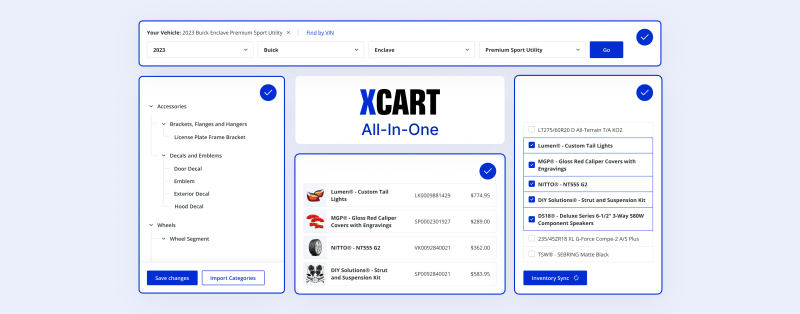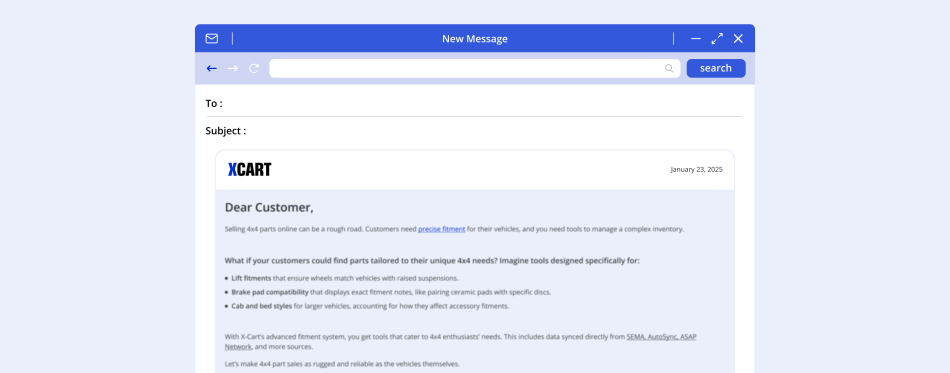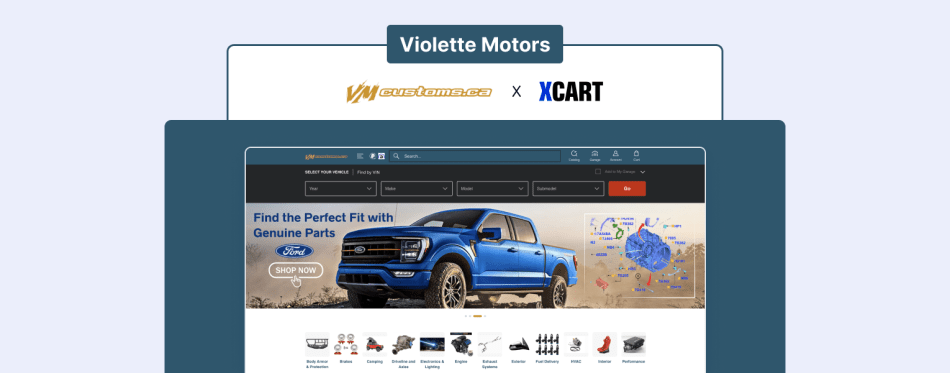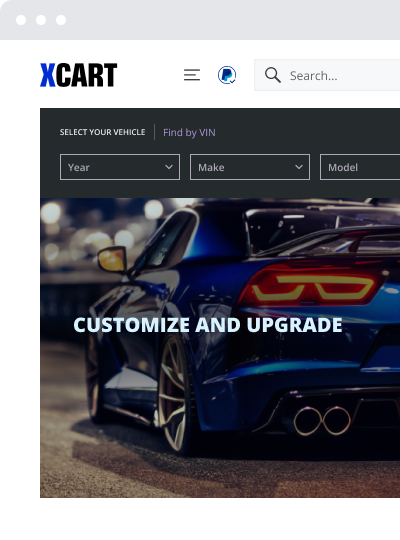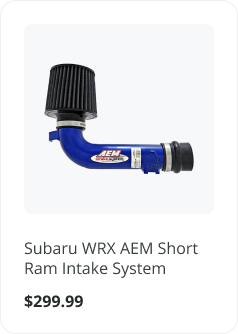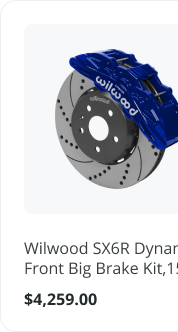Cut Costs and Simplify Workflows with the Right Shopify Alternative for Auto Parts Stores
Published: August 6, 2024
Updated: April 11, 2025
Nobody wants to waste hours stuck in traffic or make a wrong turn that leads to a dead end. Similarly, you don’t want your automotive business to hit a roadblock on its path to growth and profitability. But what if your existing website just doesn’t have the capabilities to help you expand your product line or add the features needed to take your business to the next level?
For online businesses facing these challenges, there are two roads to take: stick with the current eCommerce platform, constantly patching things up as costs rise, or look for a fresh solution that offers more flexibility while cutting down on time, effort, and maintenance expenses.
In this article, we’ll dive into the common hurdles that auto parts retailers often encounter, which may signal it’s time to improve or even switch their platform. We’ll also take a closer look at the five alternatives to Shopify built for the automotive aftermarket, comparing their features and capabilities to help you weigh your options and make the best decision for the future of your online business.
Is Shopify the Right Fit for Auto Parts eCommerce?
First and foremost, why do auto parts retailers choose Shopify when launching their online businesses? One primary reason is this platform’s recognizable brand name, which has almost become synonymous with eCommerce and usually comes first in Google searches.
Shopify undoubtedly has several advantages and can be a good choice for start-ups and online businesses in various industries.
Quick launch
Shopify’s low learning curve, and comprehensive eCommerce features available right from the start allow for a quicker launch compared to API-driven platforms. It also offers a free trial and includes web hosting services.
Website design
With a wide range of free themes and paid design skins that can be adjusted to the specific brand’s requirements via no-code, drag-and-drop functionality, you can change the look and feel of your website when and how you see fit.
App Store
Shopify offers various third-party add-ons to expand your website’s functionality and connect to crucial partners and service providers.
Automotive-Focused Apps Used with Shopify
Shopify can be an option for online auto parts stores, but it may require additional third-party integrations to fully meet your needs. This platform is designed for various industries and doesn’t offer automotive-specific tools or features as part of its core functionality. However, its app store does provide a number of third-party plugins.
With these add-ons, you can connect your website to catalog data providers, integrate with auto parts warehouse distributors, or add fitment search tools like Year, Make, Model search, and VIN lookup. Still, they may come with added setup complexity and additional costs.
Some Shopify partners, such as Spark Shipping, provide connections to auto parts suppliers and let you route your orders to the supplier’s warehouse of your choice. Others offer packages with integrations that can include catalog data providers, fitment search tools, additional sales channels, and warehouse distributors, such as Data Here To There (DH2T), SureDone, and Channel Spyder.
The hitch, however, is that, in some cases, having your automotive tools and features developed by different software providers causes some annoying issues.
Why Auto Parts Retailers Might Seek an Alternative to Shopify
1. Tedious maintenance
While there’s nothing wrong with connecting your website to add-ons built by different developer agencies, too many third-party apps integrated into your website open up such issues as time-consuming maintenance every time your platform needs an update.
2. Website slowdown
Another potential problem with third-party add-ons is slow-moving plugins and overall website slowdown. A smoothly running website is crucial for customer experience, especially regarding auto parts search and navigation.
For example, it can be disappointing to integrate the Year, Make, Model add-on to find out it is slow to respond, hard to configure or incompatible with your design template.
3. High total cost of ownership
On average, Shopify charges between 2.4% and 2.9% of each sale, plus a $0.30 per-transaction fee. To put this into perspective, let’s calculate the total commission for an auto parts store with an average customer spend of $180 and an annual turnover of $1,848,000. This works out to roughly 10,267 transactions per year, based on data from SharpSheets.
But it doesn’t stop there – beyond Shopify’s transaction fees, you’ll need to account for additional costs tied to third-party integrations. Since an auto parts store typically requires multiple distributor integrations for a diverse product range, these add-ons can quickly drive up expenses, and it’s easy to see how this can become a bit overwhelming.
Moreover, if you want to implement advanced features on your Shopify store, you’ll likely need expertise in Liquid, Shopify’s proprietary coding language. Hiring a developer to seamlessly integrate these tools can get tricky and expensive.
Now, let’s break down some of Shopify’s most popular integrations and compare what you’re spending with Shopify versus what you would spend with X-Cart.
| Shopify | X-Cart | |
| Pricing plan | Shopify Advanced $399/mo Shopify Plus $2300/mo | X-Cart Automotive $499/mo |
| Transaction fees | 2.4% to 2.9% of the sale price, plus a $0.30 per-transaction fee | no transaction fees |
| Automotive design | up to $500, one-time purchase | free, mobile-first themes |
| Fitment search apps (YMM) | 3P apps to choose: – Convermax: ($250-$850/ mo) – EasySearch ($75/ mo) – VFitz ($27.99/ mo) – Partly PIM ($299/ mo) -SearchAuto ($750/ mo) – SureFit ($100/ mo) – C: Year Make Model Search ($75/ mo) – Instant Fit ($50/ mo) – PartFinder ($49/mo) | Native YMM search, VIN lookup, and My Garage, prebuilt into your online store |
| Inventory and order management | – Slingshot Automotive ($199/ mo) – SparkShipping ($499/ mo) – Mecs Parts + TecDoc ($169/ mo) – Data-Here-To-There + Turn 14 ($1,200 one-time setup fee, + $149/mo) | Direct integrations: – Keystone Automotive Operations – Meyer Distributing – Wheel Pros – ATD – Premier Performance – Dix Performance North -nTurn 14 Distribution + free setup |
Catalog inefficiencies
An automotive catalog has a multi-level data structure, so you’ll need specific features and tools to carefully map the categories in your catalog with your parts catalog provider to ensure smooth data import and make your product information understandable and easy for your customers to search for.
Shopify provides tools such as bulk product uploads and doesn’t limit the number of SKUs in your automotive catalog. However, performance, management efficiency, and overall cost may vary based on your Shopify plan and choice of third-party integrations.
Moreover, specific requirements for fitment data in the aftermarket sector pose additional challenges with catalog structuring. For example, aligning the category structure between your online store’s and the provider’s catalogs. Shopify’s default setup lacks a direct subcategory feature and instead uses collections as categories, which do not support a hierarchical structure.
Fragmented technical support
As mentioned earlier, Shopify offers integrations with various third-party tools and apps, meaning there isn’t a single point of contact for customer support. If issues arise with any of your integrations, you’ll need to reach out to multiple companies for help. This can lead to longer response times and, as a result, delays in resolving the problem, which could affect the smooth operation of your website.
Expert tip: 5 key elements of a successful auto parts eCommerce site
- B2B and B2C Sales: Sell directly to consumers while managing dealer orders from one dashboard.
- Clean Product Data: Import accurate data from trusted catalog providers, with the option for automatic updates.
- Modern Buyer Experience: Offer precise fitment search tools and a mobile-optimized design.
- Optimized Order Management: Ensure inventory from reliable suppliers and streamline order routing with synced stock and pricing.
- Secure Payment Processors: Provide flexible payment options like credit cards, Buy Now Pay Later, Apple Pay, and Google Pay.
Shopify Competitors for Automotive eCommerce
We’ve analyzed the tools and features of the four eCommerce platforms, X-Cart, BigCommerce, Web Shop Manager, and Adobe Commerce, and compared them with Shopify capabilities to help you make an informed decision.
At X-Cart, we love our shopping cart solution and are 100% sure it has excellent capabilities for auto parts businesses’ online stores. However, we know that each online retail company is unique and has different goals (strategies to hit them also vary). This is why online sellers seek solutions that would answer their specific needs.
And we hope we’ll help you find YOURS.
Features Overview
| X-Cart | BigCommerce | Web Shop Manager | Adobe Commerce | Shopify | |
| API access | ✔ | ✔ | ❌ | ✔ | ✔ |
| Limitless SKUs | ✔ | ✔ | ✔ | ✔ | ✔ |
| Web hosting, SLL certificates | ✔ | ✔ | ✔ | ✔ | ✔ |
| Prebuilt real-time search functionality | ✔ | ❌ | ✔ | ❌ | ❌ |
| Native YMM filtering | ✔ | 3P | ✔ | 3P | 3P |
| VIN lookup | ✔ | 3P | ✔ | 3P | 3P |
| Automotive design themes | ✔ | ✔ | ✔ | ✔ | ✔ |
| Automated catalog management | ✔ | ❌ | ✔ | ❌ | ❌ |
| Direct partnerships with catalog providers | ✔ | 3P | ✔ | 3P | 3P |
| Direct integrations with warehouse distributors | ✔ | 3P | 3P | 3P | 3P |
| Payment gateways | over 120 payment gateways | over 55 payment gateways | PayPal, Affirm, Authorize.net | PayPal, Braintree, Authorize.net, Venmo | Shopify Payments |
| Payment processing fees | – | – | – | – | ❌ |
| Marketing tools | ✔ | ✔ | ✔ | ✔ | ✔ |
| SEO tools | ✔ | ✔ | ✔ | ✔ | ✔ |
| In-house development services | ✔ | ❌ | ✔ | ❌ | ❌ |
| Technical support | ✔ | ✔ | ✔ | ✔ | ✔ |
X-Cart
X-Cart Automotive is a turnkey eCommerce solution developed explicitly for online auto parts businesses. We’ve been continually improving our tools and features to meet the ever-evolving needs of automotive eCommerce and resolve its main challenges.
X-Cart provides automated massive data and inventory updates, native automotive integrations, customization options, and 24/7 customer support. These features and services are something that distinguish X-Cart from general-purpose eCommerce platforms, as Brandon Checketts mentioned in his interview with Website Planet.
X-Cart offers a number of features specifically designed to support high-volume e-commerce operations. These features provide scalability, reliability, and efficiency, which is critical for managing large transaction volumes and extensive product catalogs.
Automotive catalog management
X-Cart’s user-friendly interface makes it easy for online business owners to add new products and categories, manage and update catalog data. You can connect your online store to the most trusted auto parts catalog providers to select and automatically import the preferred brands.
- direct API integrations with SEMA Data, ASAP Network, and AutoSync;
- scheduled data imports;
- smart category mapping;
- native fitment search tools, such as YMM search and VIN lookup;
With the smart import settings, you may schedule data imports and select the time for regular catalog updates. And the category mapping feature will ease your headaches while structuring your complex data.
Order management and fulfillment
X-Cart allows you to source products from multiple reliable warehouse distributors like Keystone Automotive Operations, American Tire Distributors, Wheel Pros, and others. You can automate stock and price updates, sync your inventory, and route orders for fulfillment from your online store’s admin panel.
X-Cart, with its Multi-WD functionality, enables you to build a custom catalog using products from multiple suppliers and distributors, streamlining distribution. This makes it a strong Shopify alternative for drop shipping auto parts.
Automotive website design and parts search
With intuitive website navigation and smart product search filtering, you can reduce errors in orders and build greater customer trust. X-Cart’s pre-built Year Make Model and VIN lookup fitment search tools seamlessly integrate into automotive design skins, ensuring your customers can quickly find the exact part they need. Plus, the ‘My Garage’ feature allows customers to save their vehicle filters for future part searches, making the process even more convenient.
Assisted onboarding and proactive customer support
Each X-Cart seller gets 4 one-hour onboarding calls with a dedicated manager and technical support engineer to help launch and manage their online store hassle-free. We also offer SEO audits of their existing websites and SEO assistance during data transfer as part of their website migration to X-Cart to prevent wasting their previous SEO efforts.
Pricing
The X-Cart Automotive pricing plan offers advanced automotive features and eCommerce capabilities, starting at $499/month. This includes all functionalities with no hidden fees or per-transaction costs, except for customization options. The final cost depends on your GMV and whether any custom features are needed. If your GMV is under $1M annually and no custom features are required, your cost will remain $499/month. Onboarding and customer support are included in your subscription.
ICI’s Journey to eCommerce Success with X-Cart
To succeed in the auto parts market, ICI (Innovative Creations Inc.) needed to organize their parts data, map SKUs correctly, and ensure the products were easy to search. They also needed to control how their products were presented and purchased online. Their B2B partners expected them to handle the marketing of their own products, which meant finding a solution that made their inventory both searchable and accessible. Before the X-Cart, they relied on Yellow Pages and phone calls. Now they’re selling directly to consumers online.
Discover how ICI overcame its biggest eCommerce challenges by implementing a streamlined catalog and inventory system with automated stock and price updates and an intuitive website search to help customers easily find the right parts for their vehicles.

Save time, money, and effort with a turnkey automotive-centric eCommerce platform.
BigCommerce
This shopping cart solution offers the essential eCommerce functionality out of the box and has pricing plans for businesses of all sizes. Although it was not initially built as automotive eCommerce software, it provides a range of third-party plugins for automotive retailers, such as the Year, Make, Model search tool and integrations with SEMA Data and Torqued distribution, to name a few.
BigCommerce also allows business owners to control and track their inventory from one central location, synchronizing it across the sales channels.
This platform also claims to be flexible enough to customize your website to your needs and preferences. Although it doesn’t have an in-house development team, it offers several partnerships with developer agencies. Outsourcing customizations to third-party agencies, however, has a drawback. You risk complicating your website’s maintenance, as you’ll have to shift to different teams for support if any issue arises. This may be why this platform recently got more negative feedback on customer support services on review websites.
Pricing
BigCommerce offers four pricing tiers, starting at $29 per month. The Pro plan, priced at $299 per month, is the most popular choice for rapidly growing eCommerce businesses. Additionally, there is a custom plan available for enterprise-level users.
Read more: X-Cart vs. Shopify vs. BigCommerce for Automotive Aftermarket eCommerce Businesses
Adobe Commerce
Adobe Commerce (ex Magento) is an eCommerce application that supports massive product catalogs and can be extended with customizations.
This eCommerce solution also allows for creating configurable, bundled, and grouped products, letting customers select from different variations or kits. This feature offers greater control over the product offerings and enhances the personalized shopping experience for car parts buyers.
It is worth mentioning that car parts fitment is not a native concept in Adobe Commerce. To get this feature, you will need to build a custom solution with a Magento-certified developer or agency to integrate your eCommerce store with ACES (Aftermarket Catalog Exchange Standard) fitment data or other data sources and power a Year Make Model lookup.
Although Adobe Commerce was not designed as a solution specifically built for auto parts eCommerce, it offers several third-party integrations. You can leverage Adobe Commerce’s extension marketplace or third-party apps to get the required automotive tools and features, such as shop-by-vehicle functionality.
Pricing
Adobe Commerce offers two pricing tiers: Pro and Managed Services. The key distinction is that Managed Services includes both implementation and ongoing support, making it a great fit for enterprise-level stores. As with most Adobe products, both tiers feature custom pricing, so you’ll need to contact their team for a quote.
Web Shop Manager
WebShop Manager (WSM) is a SaaS eCommerce solution developed to help sellers in the automotive aftermarket sector. It offers essential functionality for online auto-parts merchants, including extensive eCommerce catalogs, the PartsLogic search tool, native Year Make Model filtering and product data management tools.
It also features several integrations with automotive databases, such as SEMA Data and ASAP Network. The only downside is that WebShop Manager has only a few ready-made integrations. As we mentioned above, the SaaS type of eCommerce platform keeps the users within the bounds of prebuilt tools, which means custom features or integrations can be rather complicated and expensive.
It is worth mentioning, however, that WSM has its own web development team to handle its customers’ custom integration needs. Still, it seems less versatile than API-driven eCommerce solutions.
Pricing
Web Shop Manager’s pricing structure includes both monthly and one-time fees. The monthly service and technology subscription starts at $299/month, covering ongoing support, software updates, and essential features for managing your online store. Additionally, a one-time site build cost begins at $10,000, which covers the design and development of a customized eCommerce website tailored to your business needs.
It’s Up to You
When choosing your first website builder for your online auto parts start-up, you mostly rely on word of mouth and a well-known brand name, hoping there is a free plan to test the waters. Over time, you have a more detailed picture of the necessary tools and features to make your life easier and your business more profitable.
This is when you may understand that platforms developed with a cookie-cutter approach may not suit auto parts eCommerce because they do not provide ready-made, native solutions for the automotive industry’s requirements, forcing you to compromise budgets and company goals.
In contrast, eCommerce platforms laser-focused on the dynamic needs of automotive aftermarket retail can help you optimize your critical business processes, such as:
- complex catalog data management;
- fitment search and parts compatibility;
- sourcing products from various suppliers with ensured stock sync;
- automated order routing and simplified fulfillment
With streamlined operations, you can finally focus on scaling your sales, not on the minutiae of maintenance tasks, which opens more opportunities for growing your business and revenue.
Our Techs and Expertise. Your Business Growth.
About the author

